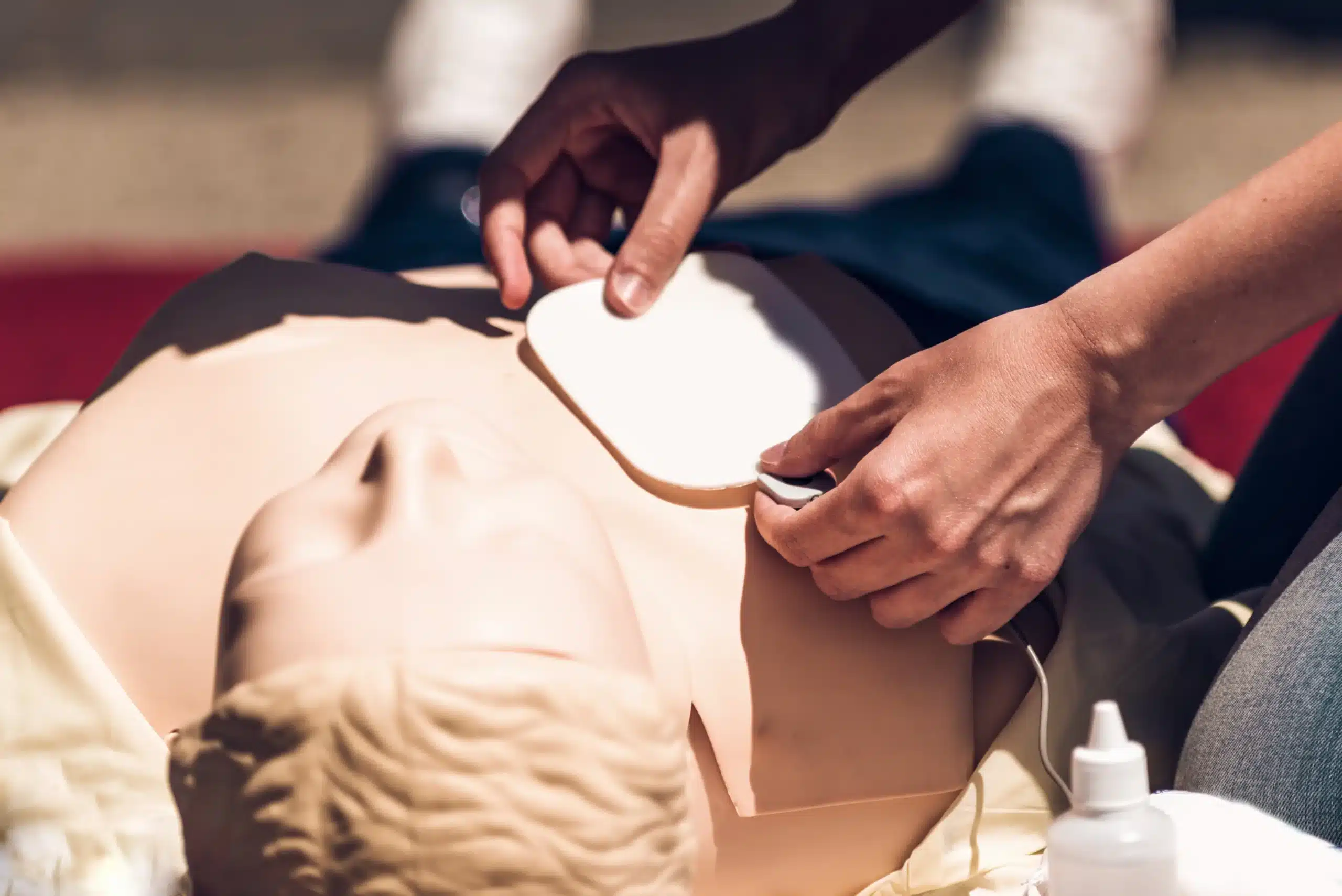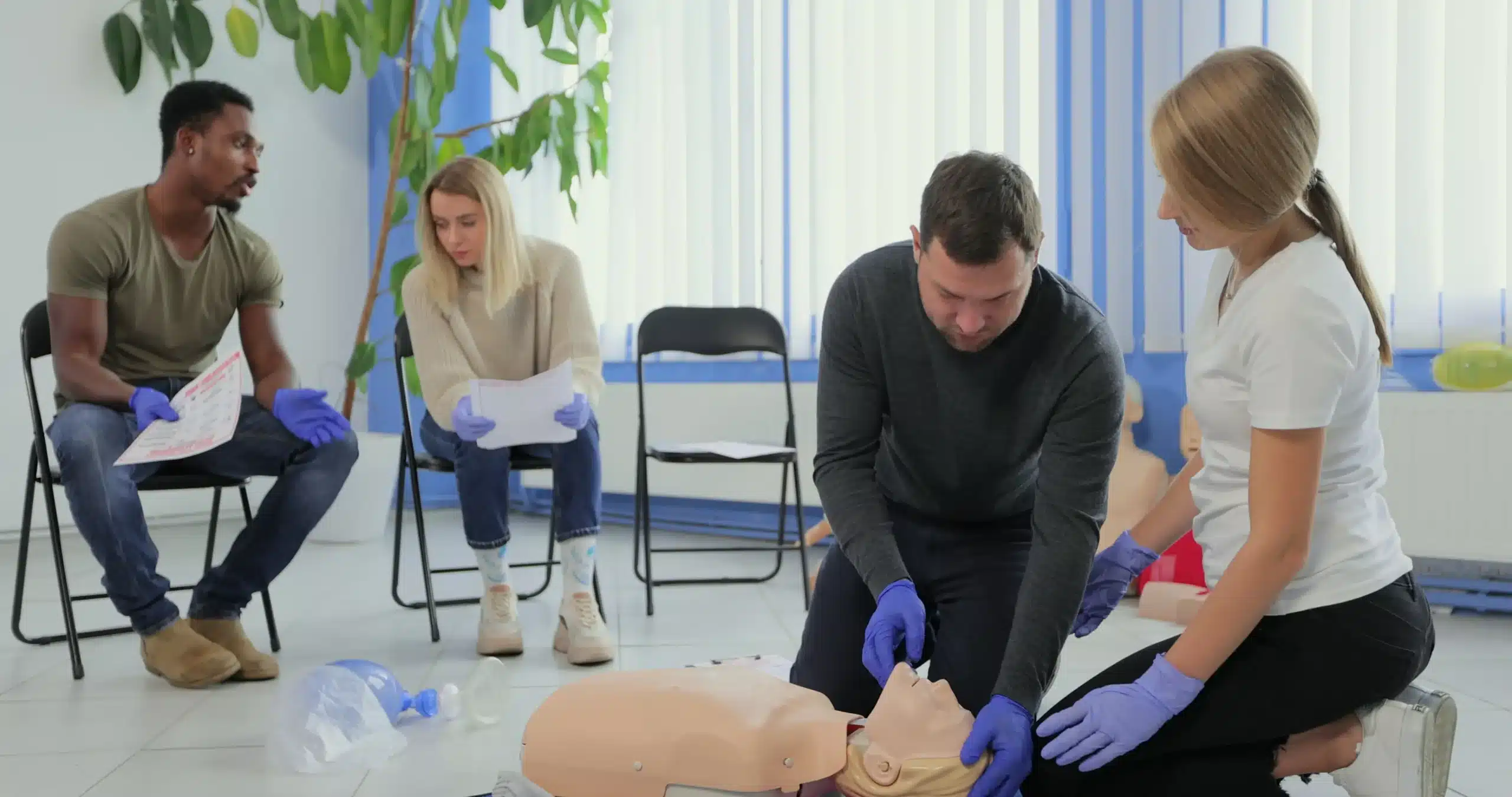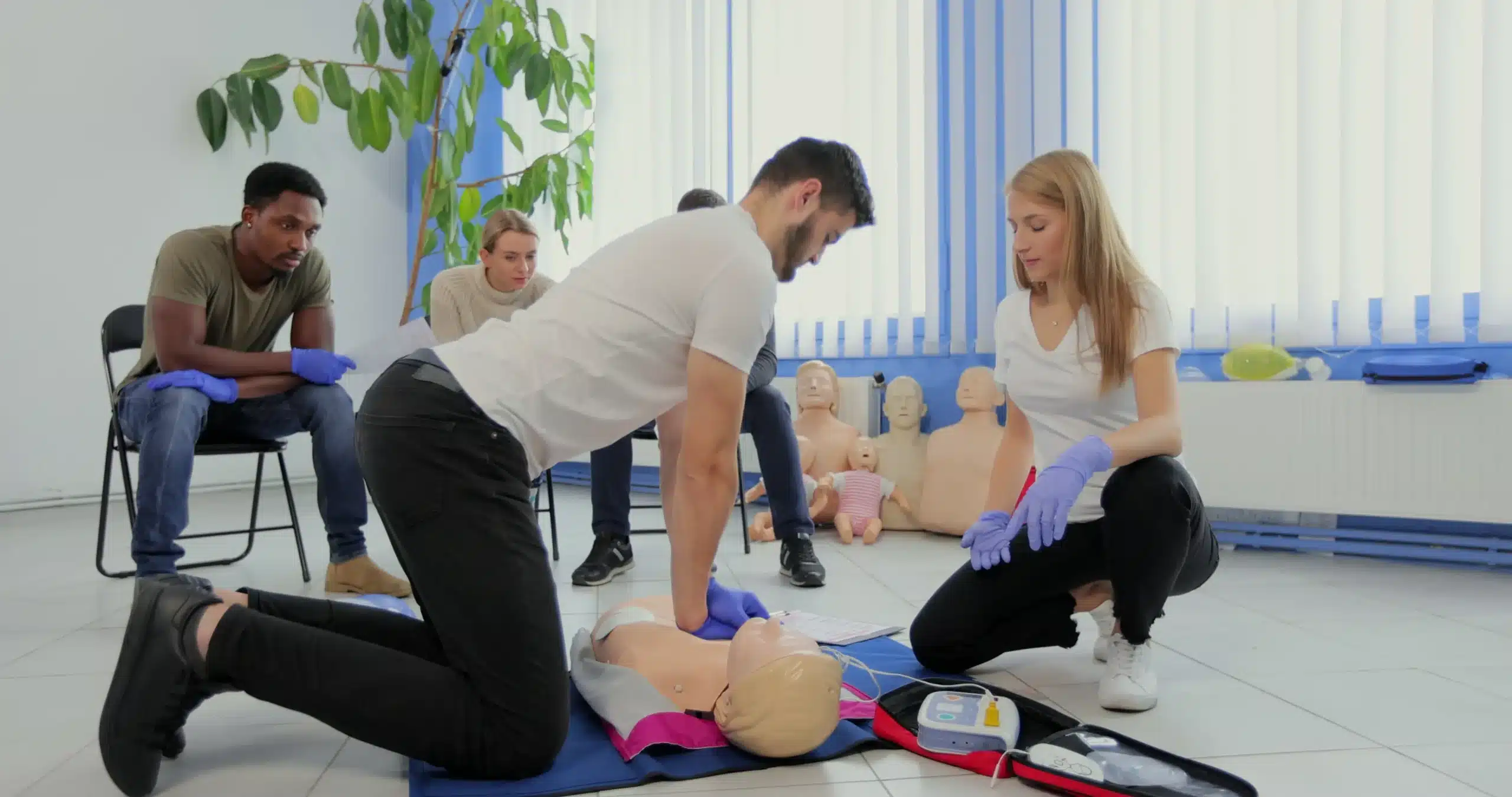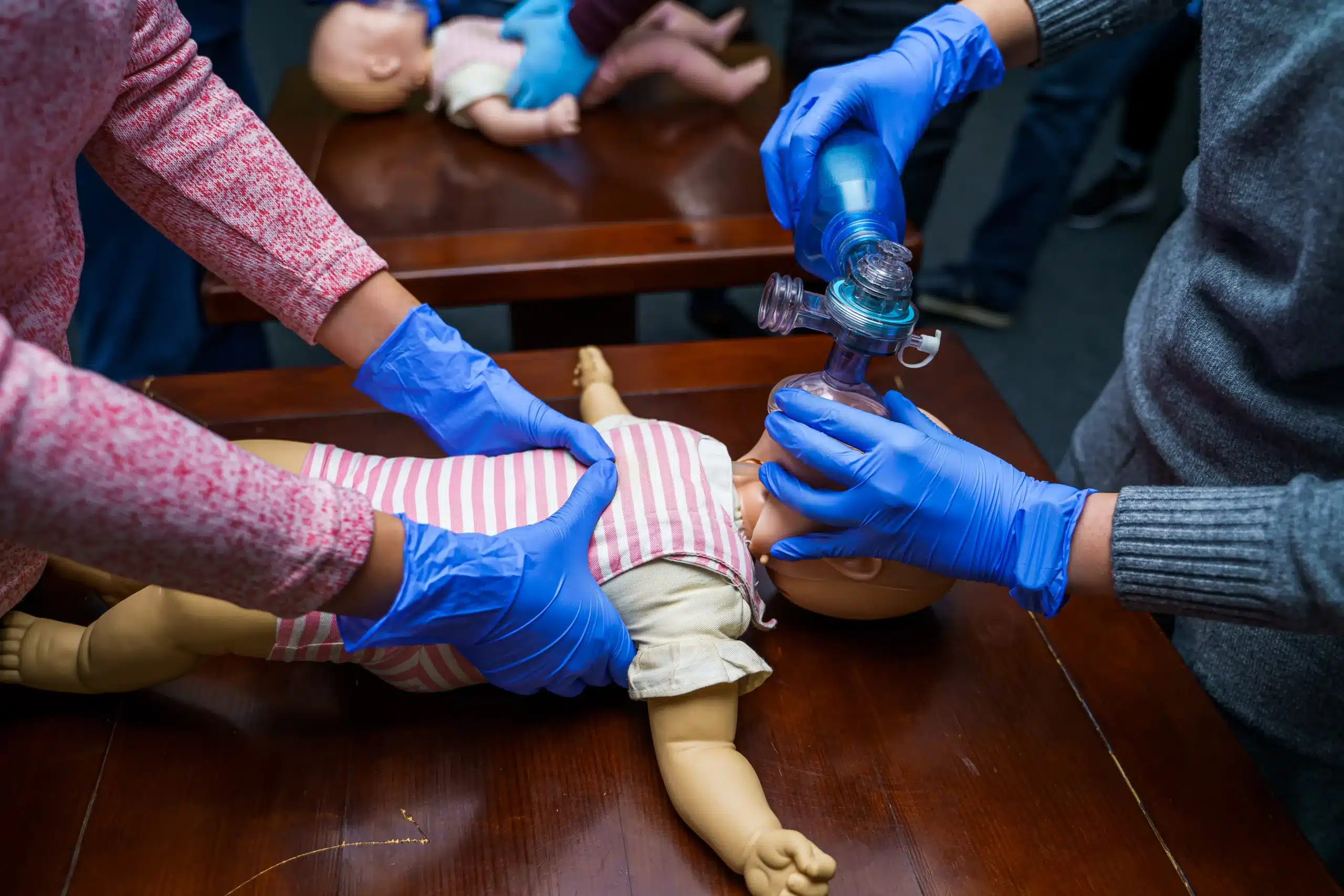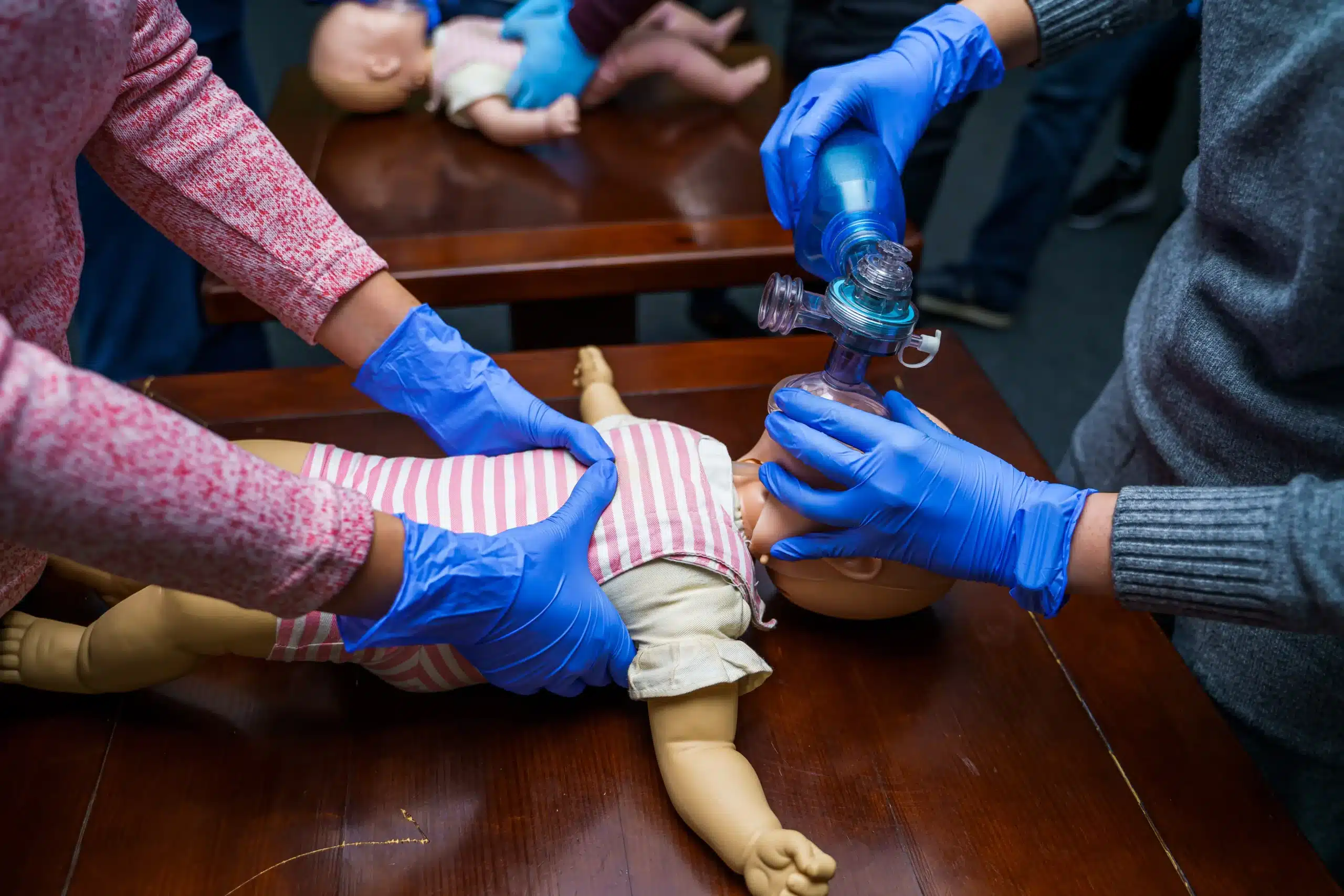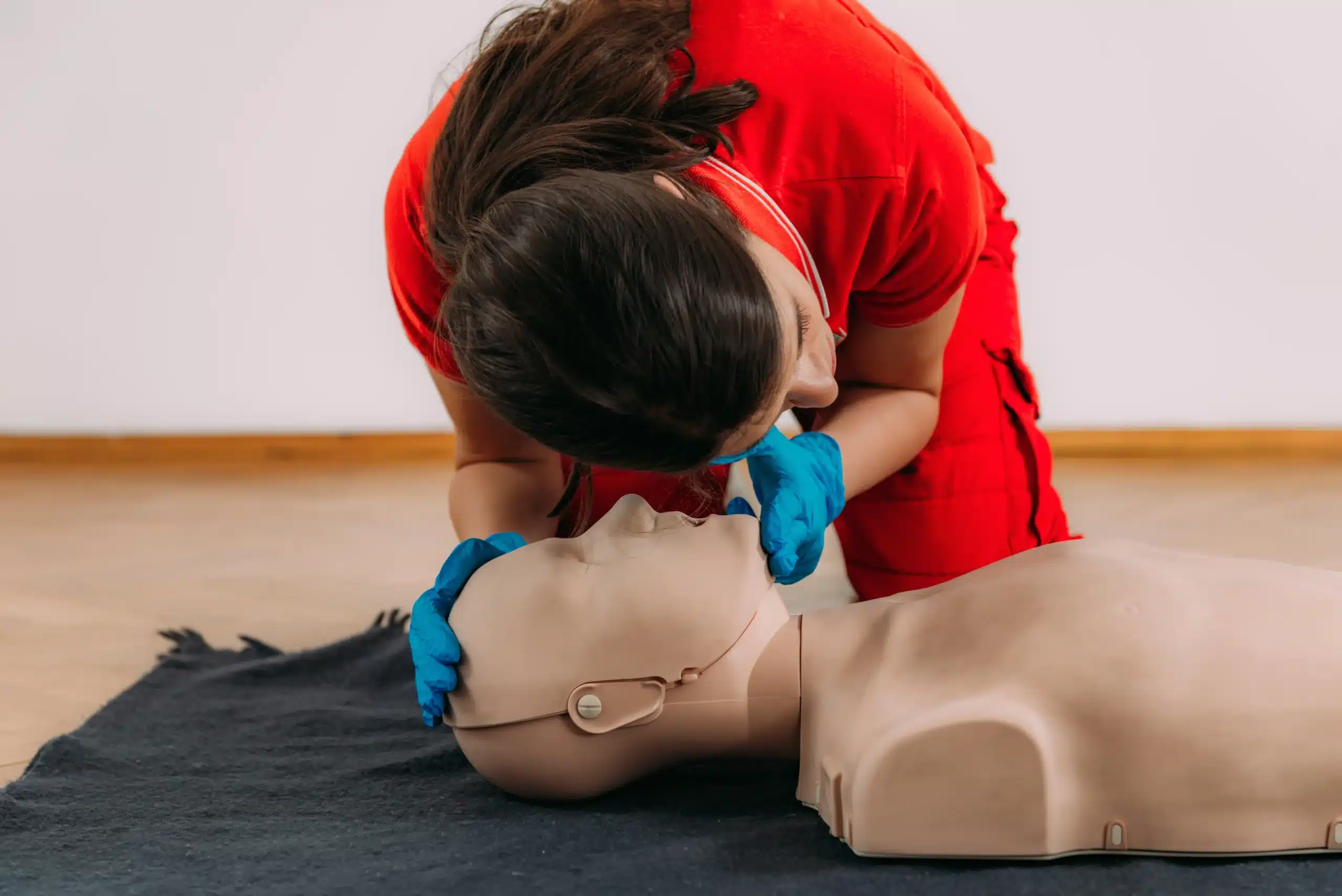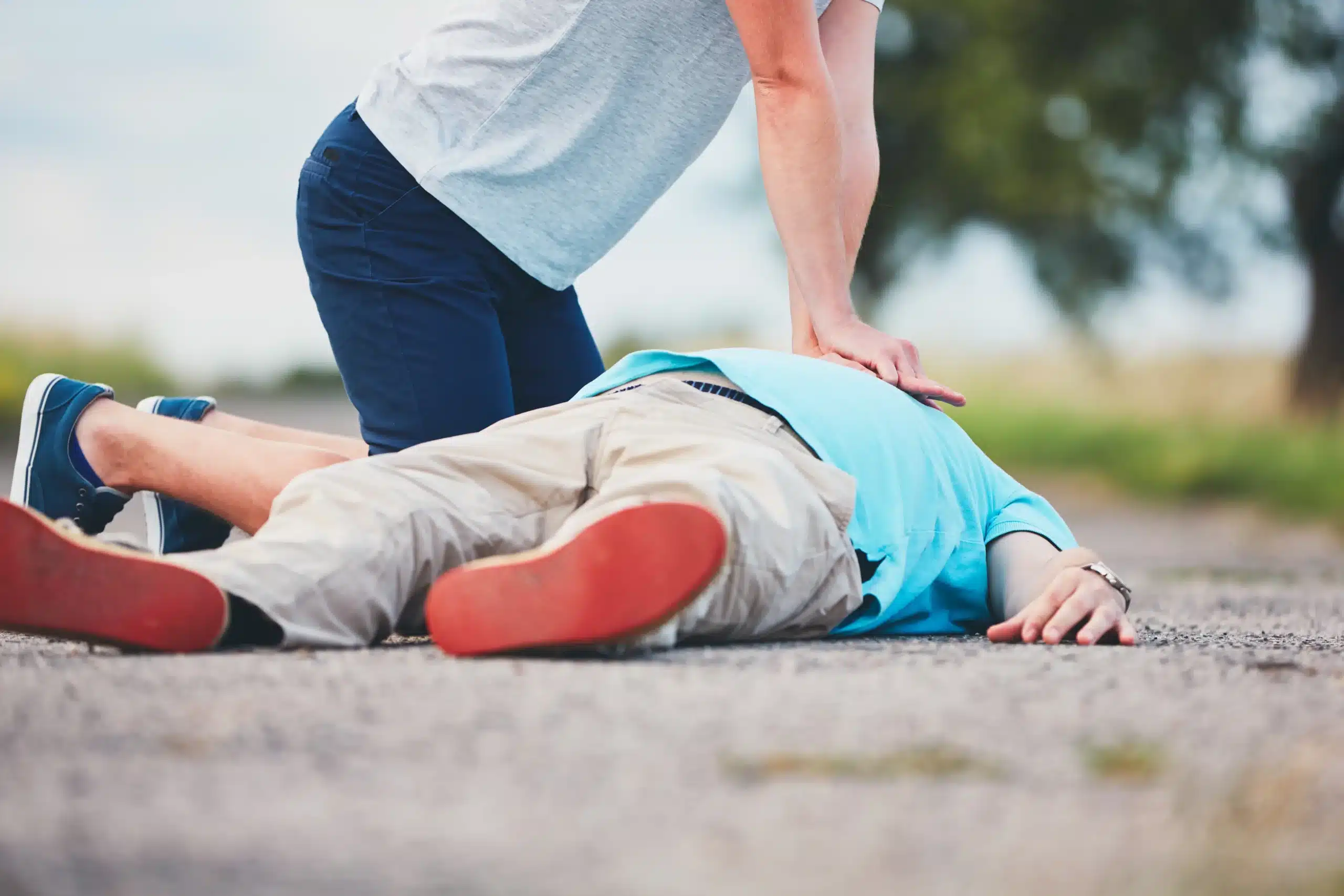Emergencies can happen anytime, anywhere. Being equipped to handle them is empowering. If you’re in the Merced, California area, this guide is your go-to resource for CPR courses in Merced. We’ll break down the different types of CPR training available, from basic life support to advanced cardiovascular life support, and help you choose the right course for your specific needs. Whether you’re a healthcare professional, a childcare provider, or simply a concerned citizen, CPR courses in Merced can provide you with the skills and confidence to respond effectively in a crisis. We’ll also discuss costs, scheduling, and the certification process, making it easy for you to find the perfect training opportunity.
Key Takeaways
- Find the right CPR course for you: Whether you’re a healthcare professional, childcare provider, or simply want to be prepared, various CPR courses cater to different needs and career goals. Consider your specific requirements when choosing a course.
- CPR training is convenient and affordable: Many providers offer flexible scheduling options, including weekend and evening classes, as well as group discounts and a low price guarantee, making CPR training accessible to everyone.
- Become empowered and confident in emergencies: CPR certification equips you with the skills and knowledge to respond effectively in critical situations, providing immediate assistance until professional help arrives. Don’t hesitate to learn this valuable, potentially life-saving skill.
What are CPR Courses in Merced?
CPR courses in Merced equip you with the skills to handle medical emergencies. These courses cover essential techniques like Cardiopulmonary Resuscitation (CPR), Basic Life Support (BLS), Advanced Cardiovascular Life Support (ACLS), Pediatric Advanced Life Support (PALS), and First Aid. Whether you’re a healthcare professional, childcare provider, or simply want to be prepared, these courses empower you to confidently respond in a crisis. Many courses in Merced offer American Heart Association (AHA) certification, ensuring nationally recognized, high-quality training. Specialized courses address the specific needs of young children in emergencies, making them an excellent resource for parents, nannies, and childcare providers. Merced CPR Classes offers a low price guarantee, making these vital skills accessible to everyone.
CPR Course Types
Choosing the right CPR course depends on your individual needs and career goals. Merced CPR Classes offers a variety of courses designed for everyone from healthcare professionals to concerned parents. Here’s a breakdown of the different types of CPR training we offer:
Basic Life Support (BLS)
The Basic Life Support (BLS) course provides the foundational knowledge and skills for healthcare professionals and anyone interested in responding to cardiac emergencies. You’ll learn how to perform high-quality CPR for adults, children, and infants, use an automated external defibrillator (AED), and recognize and respond quickly in such emergencies. This course emphasizes the critical first few minutes of a cardiac event and teaches you how to provide effective care. BLS certification is often a prerequisite for other advanced life support courses.
Advanced Cardiovascular Life Support (ACLS)
Advanced Cardiovascular Life Support (ACLS) training is designed for healthcare providers involved in managing cardiopulmonary arrest and other cardiovascular emergencies. This course builds upon the fundamentals of BLS and explores more complex algorithms and treatment strategies. ACLS emphasizes teamwork and effective communication during resuscitation efforts. It also covers advanced airway management techniques. It’s a crucial certification for doctors, nurses, paramedics, and other healthcare professionals working in critical care settings.
Pediatric Advanced Life Support (PALS)
Specifically tailored for healthcare providers who work with infants and children, the Pediatric Advanced Life Support (PALS) course focuses on the unique physiological differences and treatment considerations for pediatric patients. You’ll learn how to recognize and respond to respiratory and cardiac arrest in children, manage pediatric airway and breathing emergencies, and provide appropriate interventions. PALS certification is essential for pediatricians, pediatric nurses, emergency medical technicians, and other healthcare professionals who care for young patients.
First Aid/CPR Combo Courses
For those seeking comprehensive training in both first aid and CPR, our combo courses offer a convenient and practical solution. These courses cover essential first aid skills for common injuries and illnesses, along with CPR and AED training for adults, children, and infants. A First Aid/CPR combo course is an excellent choice for anyone who wants to be prepared for a range of emergencies—from minor cuts and burns to life-threatening cardiac events. It’s ideal for teachers, coaches, childcare providers, parents, and anyone interested in gaining valuable life-saving skills.
Costs & Registration
Knowing the costs and registration process upfront streamlines your CPR training. Here’s a breakdown to help you plan:
Individual Course Prices
Individual course prices vary depending on the certification you need. A Heartsaver CPR AED First Aid course, teaching essential lifesaving skills for adults, children, and infants, will have a different price than a more advanced course like BLS for healthcare providers. Check with your chosen provider, like Merced CPR Classes, for specific pricing. You’ll often find transparent pricing listed directly on their website.
Group Discounts & Packages
If you’re training with a group, ask about discounts. Many providers, including Merced CPR Classes, offer reduced rates for group registrations. This is a great option for workplaces, community groups, or families training together. Some providers also offer package deals combining multiple certifications, like BLS and First Aid, at a discounted price.
Register Online or In-Person
Registering for your CPR course is usually straightforward. Most providers allow online registration through their website. Some providers may also accept registrations in person or over the phone. Choose the method that works best for you. With classes often running seven days a week, finding a time that fits your schedule should be easy.
Required Info & Documents
Before your course, gather any necessary information and documents. This might include identification and any prerequisite certifications. Review this checklist from Merced CPR Classes to ensure you have everything you need. A bonus perk at Merced CPR Classes is a free keychain CPR training mask, and you’ll receive your official American Heart Association eCard immediately upon completing your skills testing.
Course Length & Schedule
CPR course schedules are designed to accommodate various needs and lifestyles. Whether you’re a busy professional, a full-time parent, or a student, you can find a course that fits your schedule. Let’s explore some common scheduling options:
Intensive Courses
For those who prefer to complete their training quickly, intensive CPR courses offer a condensed format. These accelerated courses cover the same essential material as standard CPR classes but in a shorter timeframe. Intensive courses often run for a full day or over a weekend, allowing you to obtain your certification efficiently. This format is ideal for people with demanding schedules or those who learn best in an immersive environment. Check with your chosen provider, like Merced CPR Classes, for their intensive course offerings.
Multi-Day Sessions
Multi-day CPR courses provide a more spread-out learning experience. These sessions typically occur over a few days or weeks, with each class lasting a couple of hours. This format allows for more gradual absorption of information and provides ample opportunity for practice and feedback. Multi-day sessions are a good option for those who prefer a less intensive learning pace or have other commitments. The American Red Cross offers a variety of multi-day CPR course options.
Online & Hybrid Learning
Online and hybrid learning models offer even greater flexibility. Fully online courses allow you to complete the theoretical portion of the training at your own pace, from anywhere with an internet connection. Hybrid courses combine online learning with in-person skills sessions, providing a blended approach. The in-person sessions focus on hands-on practice and allow you to demonstrate your skills to a certified instructor. Red Cross CPR training often includes online and hybrid learning options. This format is particularly beneficial for those with limited access to in-person training or who prefer the convenience of online learning.
Certification & Renewal
AHA Certification
Safety Training Seminars in Merced, CA offers American Heart Association (AHA) certified classes in CPR, BLS, ACLS, PALS, and First Aid. Earning AHA certification ensures your training meets nationally recognized standards, often a requirement for healthcare jobs and other professions. Merced CPR Classes provides AHA-compliant training, giving you the confidence and credentials you need.
How Long is Certification Valid?
After completing your CPR course in Merced, you’ll receive an American Heart Association certification card, valid for two years. This timeframe aligns with industry best practices, ensuring your skills and knowledge stay current. Keeping your certification current is key for maintaining your qualifications and responding effectively in emergencies.
Renew Your Certification
CPR certification lasts for two years and meets OSHA workplace safety requirements. Before it expires, take a renewal course to stay current. Merced CPR Classes offers streamlined renewal courses to refresh your skills efficiently, ensuring you’re always prepared to respond effectively in critical situations. Check with your employer or regulatory body for specific renewal requirements.
What Happens in a CPR Course?
CPR courses blend theory and practice to equip you with the lifesaving skills you need. Here’s what you can expect:
Classroom Learning
CPR training starts with the fundamentals. You’ll learn about the importance of quick action in emergencies and the steps involved in performing CPR. This foundational knowledge provides the context for the practical skills you’ll develop. For more information on CPR and first-aid classes in Merced, visit Merced CPR Classes.
Hands-on Training
Theory comes to life in the hands-on portion of the course. You’ll practice CPR techniques on mannequins in a safe, controlled environment. This hands-on training builds confidence and ensures you can perform CPR effectively under pressure. Instructors offer guidance and feedback, helping you refine your technique and answer any questions.
Assessment & Evaluation
After training, you’ll take a skills test to demonstrate your CPR proficiency. This assessment ensures you can perform CPR correctly and meet the required standards. Successful completion earns you an official certification card, usually valid for two years. This card validates your skills and allows you to provide CPR assistance when needed.
Prepare for Your CPR Course
Getting ready for your CPR class doesn’t have to be stressful. Knowing what to expect and how to prepare can make your learning experience smoother and more effective. Here’s what you need to know before your CPR course in Merced:
What You Need
Before heading to your CPR class, gather a few essentials. A notebook and pen are helpful for taking notes and jotting down questions. You’ll also want a comfortable bag to carry your belongings, including your AHA BLS provider manual if you’ve purchased one in advance. Having the right tools will help you focus on learning these lifesaving skills.
Pre-Course Resources
Merced CPR Classes offers resources to help you prepare. Their course preparation page has essential information. You’ll find details about the online portion of the course, which requires a computer or tablet (a phone won’t work). This online component lets you learn at your own pace before practicing your skills in person. You’ll also receive a free keychain CPR training mask on the day of your course. Familiarizing yourself with these resources beforehand will ensure you’re ready for a successful training. Upon completion, you’ll receive your two-year American Heart Association certification card.
Dress Code & Physical Requirements
CPR courses involve hands-on practice, so comfortable clothing is key. Choose something you can easily move in, like athletic wear or casual attire. Avoid restrictive clothing or anything that might interfere with chest compressions and other techniques. While there aren’t strict physical requirements, be prepared for some physical activity during the skills practice. If you have any concerns about the physical demands, it’s always a good idea to contact Merced CPR Classes beforehand. They can offer modifications or suggestions to ensure you can fully participate.
Choose the Right CPR Course
Knowing which CPR course is right for you depends on your specific needs. Whether you’re a healthcare provider, work with children, or simply want to be prepared for emergencies, there’s a course designed for you. Let’s break down the options to help you make the best choice.
Healthcare Professionals
For healthcare professionals like doctors, nurses, and EMTs, maintaining top-notch CPR skills is non-negotiable. Regular practice and continuing education are essential for providing effective care during emergencies. BLS for healthcare providers covers core techniques and emphasizes teamwork and communication in medical settings. ACLS certification goes further, equipping professionals with the knowledge to handle complex cardiovascular emergencies. PALS certification focuses on the specific needs of infants and children. These courses aren’t just about getting certified—they’re about ensuring patient safety and positive outcomes. Consistent training builds confidence and enhances your ability to respond effectively under pressure, ultimately increasing patient survival rates. At Merced CPR Classes, we offer BLS and ACLS courses through the American Heart Association designed specifically for healthcare providers.
Childcare Providers & Educators
If you work with children, CPR and first-aid training is essential. A specialized CPR course for California childcare providers covers the unique needs of infants, children, and adolescents. These courses teach essential skills for responding to choking, breathing emergencies, and other medical situations. Even with little or no medical background, you can gain the confidence to act quickly and effectively. A Heartsaver First Aid, CPR & AED class is a great option, providing comprehensive training for adults, children, and infants. Protecting the children in your care starts with being prepared.
General Public & Parents
CPR training isn’t just for professionals—it’s a valuable skill for everyone. Knowing CPR can empower you to save a life in an emergency. Whether it’s a family member, a friend, or a stranger, you can make a difference while waiting for professional medical help to arrive. Growing community interest in CPR training reflects a shared commitment to safety and preparedness. Learning CPR can give you peace of mind, knowing you have the skills to respond in a crisis. Understanding the importance of CPR and dispelling common misconceptions can encourage more people to seek out this life-saving training. Merced CPR Classes offers courses suitable for the general public, including parents, grandparents, and anyone interested in learning CPR. Check out our low price guarantee and find a class that fits your schedule.
CPR Course Providers in Merced
Finding the right CPR course provider is key to a positive and effective learning experience. Here are some options to explore in the Merced area:
Merced CPR Classes
Merced CPR Classes offers a range of American Heart Association (AHA) certified courses, including BLS, ACLS, PALS, and First Aid. They also provide training for childcare providers complying with California EMSA requirements. Group discounts make it a cost-effective choice for workplaces or community groups. Their low price guarantee ensures accessible training for everyone.
American Heart Association
While the AHA doesn’t directly teach classes, they set the standards for CPR training. You can find AHA-certified courses through various providers, including hospitals, community centers, and independent instructors. Use the AHA course locator to find certified training centers near you. This ensures your certification meets nationally recognized standards.
American Red Cross
The American Red Cross is another well-known provider of CPR and First Aid training. They offer various course formats, including in-person, online, and blended learning. Find a Red Cross class and choose the learning style that works best for you.
Safety Training Seminars
Safety Training Seminars brings on-site training to businesses and organizations. This is a convenient option for companies wanting to train multiple employees at once. Contact them to discuss scheduling and customized training. They also offer CPR course prep information.
Central Valley Medical
Central Valley Medical offers CPR and other medical training courses in the Merced area. Visit their website or contact them for information on courses and schedules.
Ready Response Medical Training
Ready Response Medical Training focuses on community-based CPR training. They aim to equip individuals with the skills to handle emergencies. Contact them for course details and availability.
Benefits of CPR Certification & Myths
Getting CPR certified isn’t just about checking a box; it’s about equipping yourself with skills that can make a real difference. Let’s explore some key advantages and debunk common misconceptions surrounding CPR.
Career Advancement
For many healthcare providers, CPR certification is a job requirement and a stepping stone for career growth. It shows a commitment to patient safety and a higher standard of care. As noted by CPR AED Course, CPR and AED training can significantly improve career opportunities for healthcare providers. Whether you’re a medical student, nurse, or doctor, having these certifications on your resume can open doors to new roles and responsibilities.
Be Prepared
Emergencies can happen anytime, anywhere. CPR training empowers you to respond effectively in critical situations. One Stick Edu highlights how being CPR-trained builds confidence in managing emergencies and significantly improves patient survival rates. Knowing you can provide immediate assistance until professional help arrives offers invaluable peace of mind. This preparedness extends beyond healthcare settings, benefiting anyone from parents and teachers to coaches and childcare providers. Consider getting CPR certified to be prepared.
Community Safety
The rise in CPR and first-aid training reflects a growing community focus on safety and preparedness. CPR training creates a network of individuals ready to respond to emergencies, fostering a safer environment for everyone. This community-minded approach is evident in the increasing interest in CPR classes in Merced, demonstrating a collective commitment to building a more prepared community. Learn more about our group discounts for CPR classes.
CPR Mythbusting
Several myths surround CPR training, often discouraging people from getting certified. Let’s clear up some common misconceptions:
-
Myth: Only healthcare professionals can perform CPR. This is false. CPR training is available and beneficial for everyone. As CPR Certification Now explains, proper CPR training empowers anyone to provide immediate, potentially life-saving care while waiting for professional medical assistance. Visit our website to learn more about our CPR courses.
-
Myth: CPR always saves lives. While CPR significantly increases the chances of survival, it’s not a guaranteed life-saver. CPR Certification Now also clarifies that while continuous CPR is ideal, pausing briefly to call for help or use an AED is understandable. The most important thing is to start CPR as quickly as possible and continue until help arrives. Review our course prep materials to learn more.
Related Articles
- CPR Certification in Merced: Your Complete Guide – Merced CPR Classes
- CPR Classes in Merced: Your Complete Guide – Merced CPR Classes
- CPR & First-Aid Training in Merced: Your Guide – Merced CPR Classes
- CPR Certification in Turlock: Your Guide – Merced CPR Classes
- CPR & First-aid Classes in Merced, CA – Merced CPR Classes
Frequently Asked Questions
What’s the difference between BLS and ACLS?
BLS focuses on the fundamentals of CPR and is suitable for anyone, while ACLS is more advanced, covering complex cardiovascular emergencies and is designed for healthcare professionals. Think of BLS as the foundation and ACLS as the next level up.
How much do CPR courses cost in Merced?
Course costs vary depending on the type and provider. Check directly with Merced CPR Classes for their pricing, as they offer a low price guarantee. They also have group discounts, so if you’re training with friends, family, or colleagues, you might be able to save some money.
How long does it take to get CPR certified?
The time commitment depends on the course format. Intensive courses can be completed in a day, while multi-day sessions offer a more gradual learning experience. Online and hybrid options provide flexibility, allowing you to learn the theory at your own pace before attending an in-person skills session.
How do I renew my CPR certification?
CPR certifications are typically valid for two years. You’ll need to take a renewal course before your current certification expires. Merced CPR Classes offers streamlined renewal courses to make this process easy and efficient.
What if I have physical limitations? Can I still take a CPR course?
Absolutely! While CPR involves physical activity, modifications can be made to accommodate various needs. Contact Merced CPR Classes beforehand to discuss any concerns, and they’ll work with you to ensure you can fully participate.
